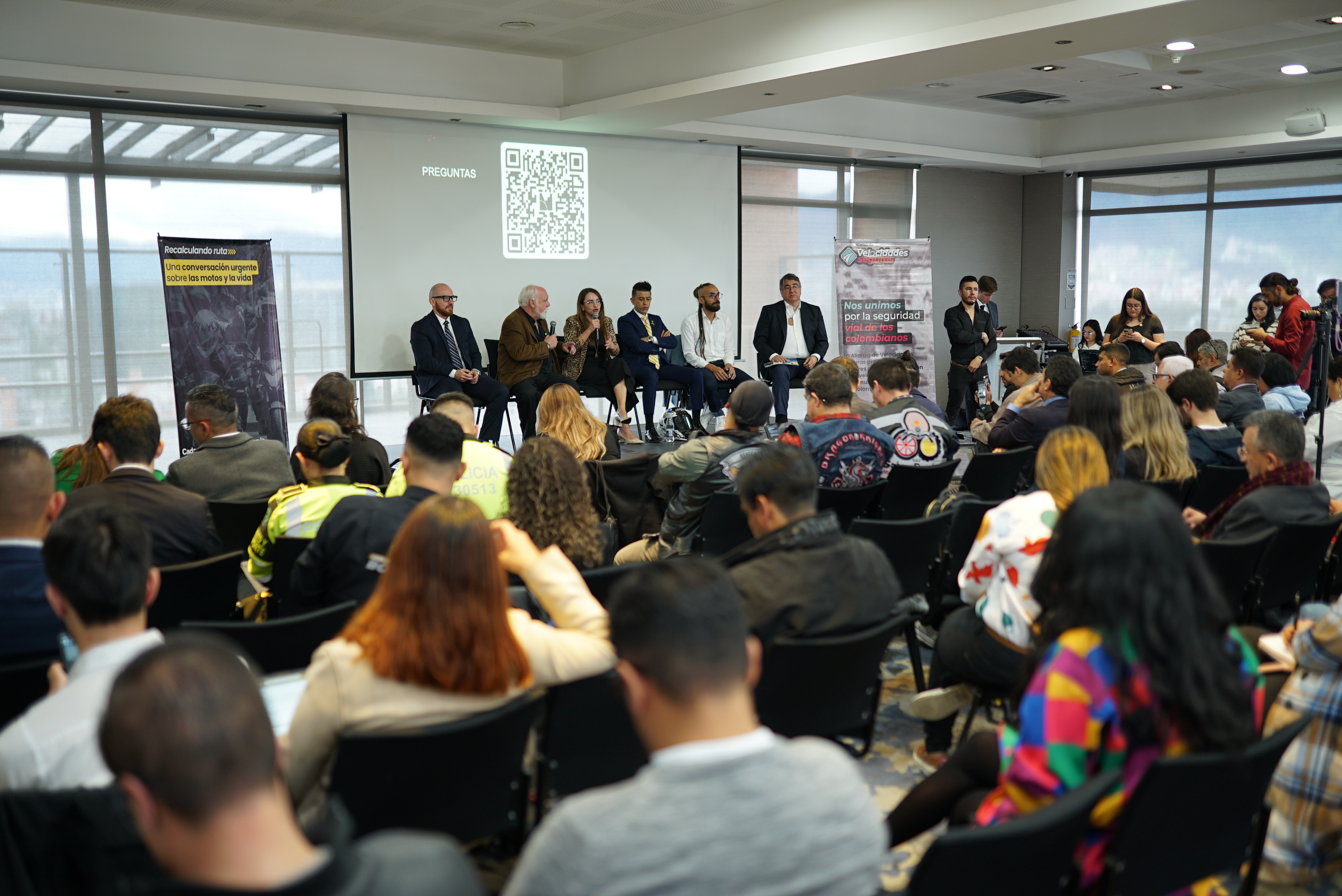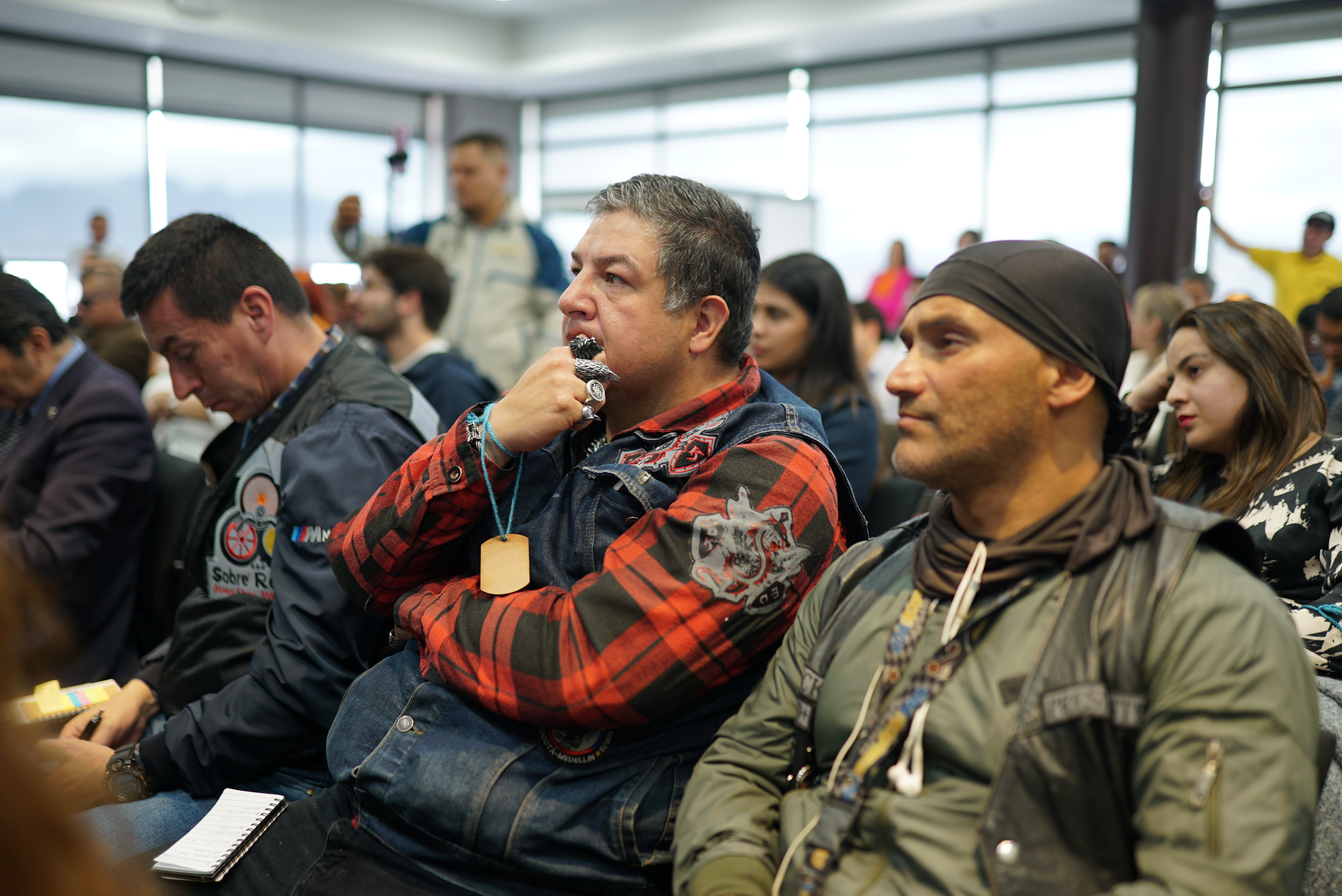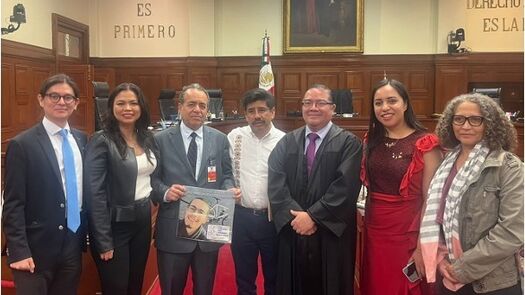December 19, 2025

Every day in Colombia, 14 motorcyclists leave home and never return. They are daily commuters, parents dropping their children off at school and delivery riders working to make ends meet. Colombia is the second country in the Americas with the greatest number of motorcycle deaths and an estimated 40,000 serious injuries per year. This has become a tragic and familiar pattern: families torn apart, lives lost and futures shattered. It’s a serious public health crisis and a significant economic burden for the country.
A Motorcycle Forum for Urgent Action
To address this issue, Global Health Advocacy Incubator (GHAI) and the World Resources Institute, alongside civil society partners, Conduce a 50, Vive al 100 from Los Andes University and Ciudad Humana Foundation, convened changemakers in Bogota Colombia at the forum “Recalculating the Route: An Urgent Conversation on Motorcycles and Life.” The event brought together government officials, decision-makers from both the Congress of the Republic and the Executive branch-the Ministry of Health and the National Road Safety Agency, road safety experts, industry representatives, victims’ groups, motorcyclist associations and journalists. Through panels and working sessions, participants analyzed data, shared experiences and agreed on public policy actions that must be carried out in the coming years to reduce injuries and death among motorcycle users.
The forum culminated with the development of a road map of priority actions, which will guide upcoming advocacy efforts to advance the Safe System Approach on both urban and rural roads across Colombia.
Spotlight on the Carvalho Legislation
A highlight of the forum was the growing momentum behind the Carvalho Legislation, a bill that would introduce essential road safety measures: gradual licensing for novice drivers, penalties for parents and caregivers of underage motorcyclists, and a demerit point system for all drivers. The Carvalho is an important first step, but more will be needed:
- Safety Gear: Effective use of certified helmets and personal protection elements such as gloves and high-visibility vests
- Stronger Safety Standards: Raising vehicle safety standards, including anti-lock brakes and daytime running lights
- Safer Speeds: Setting speed limits that protect road users in urban and rural areas
- Improved Infrastructure: Designing safer road infrastructure for motorcyclists and pedestrians, and
- Comprehensive Protection for Vulnerable Road Users: Including women and children, as well as pedestrians, cyclists and motorcyclists
Civil society advocates are mobilizing to ensure the Carvalho legislation is not just passed before the end of 2025, but that the government passes a series of policies that are needed to address the motorcycle crisis in Colombia and reduce severe injury and death throughout the country.

Looking ahead
The dialogue that took place at the forum provided the opportunity to share key components of the Carvalho Legislation with stakeholders, including motorcyclists themselves. During the next five months, civil society will work to keep this issue high on the agenda, urging decision-makers to prioritize the passage of the bill. While this is but one piece of the policy puzzle, the Carvahlo Legislation represents a critical first step toward addressing the motorcycle crisis as it includes policies that will help forge a safer system for everyone who uses Colombia’s roads.
GHAI and its partners will continue to stand alongside Colombia's civil society, pushing for stronger laws, better infrastructure and a future where motorcycles no longer symbolize risk and tragedy.



